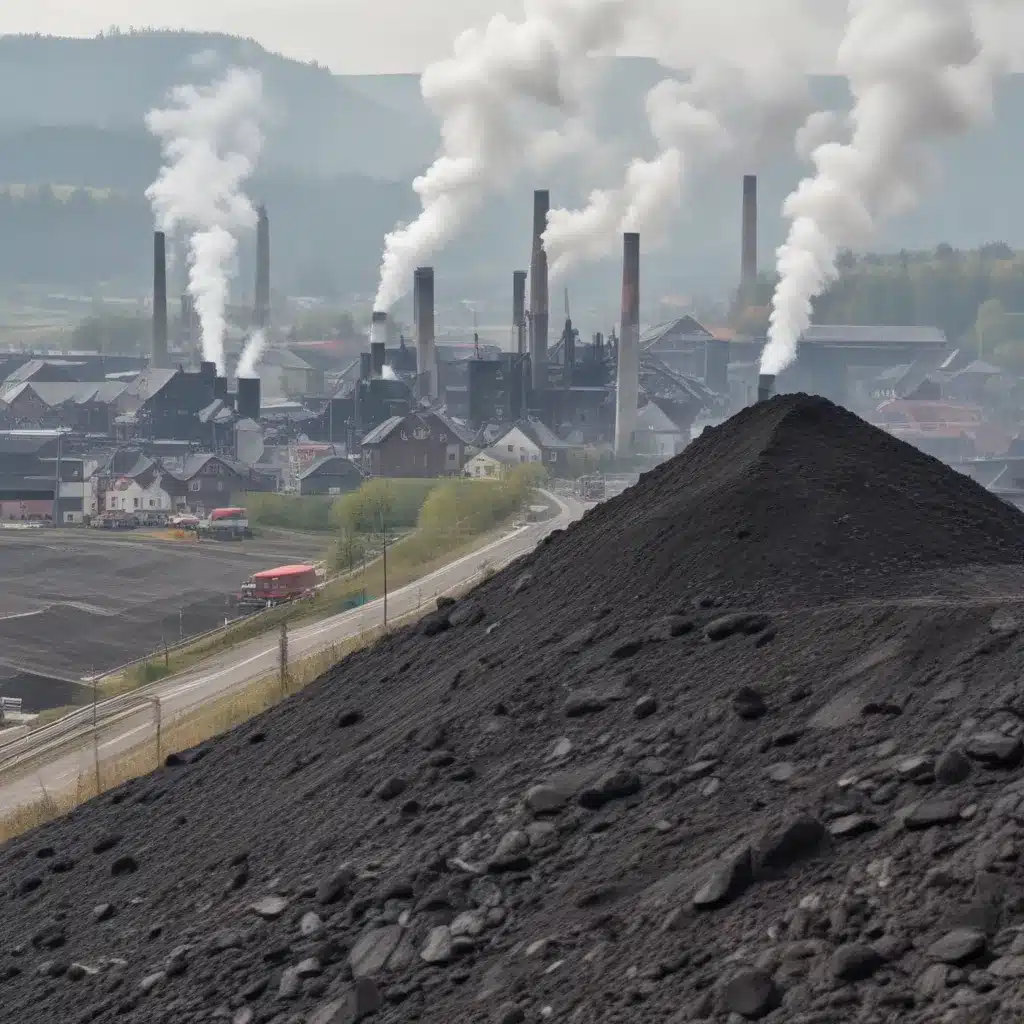
Rural Germany is at the forefront of the nation’s ambitious clean energy transition, known as the Energiewende. As the country phases out coal-fired power plants, local governments in these coal-dependent regions are playing a crucial role in steering their communities toward a sustainable future. Through innovative strategies and steadfast community engagement, these local leaders are forging a path for a just and equitable coal transition.
The Challenges of Rural Germany
Germany’s coal mining and power generation regions, primarily located in the western and central parts of the country, have long been the economic backbone of rural communities. However, the impending coal phase-out by 2038 presents significant challenges for these areas. The loss of well-paying jobs in the coal industry, coupled with the need for large-scale infrastructure changes, threatens the social and economic fabric of these regions.
Local governments in these coal-dependent areas face the daunting task of diversifying their economies, retraining the workforce, and transitioning to renewable energy sources – all while maintaining community cohesion and support. The transition away from coal requires careful planning, substantial investments, and close collaboration between local, regional, and national stakeholders.
The Strategies Employed by Local Governments
Proactive local governments in rural Germany are spearheading a range of strategies to address the challenges of the coal transition. One such approach is the Structural Change Contracts, which facilitate cooperation between local authorities, the federal government, and industry partners. These contracts provide a framework for coordinated investments in infrastructure, job creation, and the development of new economic sectors.
For example, the town of Ibbenbüren in North Rhine-Westphalia has leveraged its Structural Change Contract to establish a Competence Center for Renewable Energies and Energy Efficiency. This hub serves as a focal point for research, training, and the incubation of clean energy startups, helping to build a skilled workforce and promote local innovation.
The Impact on the Local Economy
The transition away from coal is already having a tangible impact on the economies of rural Germany. In the Rhenish mining region, the phaseout of lignite (brown coal) mining has led to the closure of several power plants and the loss of thousands of jobs. However, local governments have responded proactively, seeking to diversify their economies and create new employment opportunities.
One notable success story is the town of Hückelhoven, which has transformed its former coal-fired power plant into a solar park and battery storage facility. This project not only generates clean energy but also provides new jobs in the renewable energy sector, helping to offset the economic impact of the coal transition.
The Regulatory Framework for Coal Transition
The German government has established a comprehensive regulatory framework to support the coal transition, which includes a range of environmental regulations, financial incentives, and stakeholder engagement mechanisms.
Environmental Regulations and Policies
The German Coal Phase-Out Act, passed in 2020, sets legally binding targets for the gradual reduction of coal-fired power generation, culminating in the complete phase-out by 2038. This legislation is complemented by stricter emissions standards, carbon pricing, and support for the development of carbon capture and storage (CCS) technologies.
Incentives and Financial Support
To mitigate the economic impact of the coal transition, the federal government has earmarked €40 billion in funding for affected regions. This includes investments in infrastructure development, workforce retraining programs, and the promotion of renewable energy and energy efficiency** initiatives.
Stakeholder Engagement
Recognizing the importance of community buy-in, the German government has implemented robust stakeholder engagement processes. Local authorities, workers’ unions, environmental groups, and community organizations are all actively involved in the development and implementation of coal transition policies.
Sustainable Development in Coal-Dependent Regions
As local governments in rural Germany navigate the coal transition, they are also pursuing strategies to foster long-term sustainable development within their communities.
Diversifying the Local Economy
Beyond the clean energy sector, local governments are supporting the growth of other industries, such as advanced manufacturing, logistics, and tourism, to create new employment opportunities and attract investment.
Renewable Energy Initiatives
Renewable energy projects, including wind farms, solar parks, and biomass plants, are being developed in close collaboration with local communities. These initiatives not only generate clean power but also provide an important source of revenue and job creation for the affected regions.
Workforce Retraining Programs
Recognizing the need to support displaced coal workers, local governments are investing in comprehensive vocational training and skills development programs. These initiatives help workers transition to new careers in the clean energy sector or other emerging industries.
The Role of Community Engagement
At the heart of the coal transition in rural Germany is the active engagement of local communities. Local governments have placed a strong emphasis on fostering citizen participation in the decision-making process, ensuring that the concerns and priorities of residents are reflected in the transition plans.
Citizen Participation in Decision-Making
Local authorities have established inclusive forums, such as citizens’ assemblies and town hall meetings, where residents can voice their opinions, share their concerns, and contribute to the development of transition strategies.
Collaboration with NGOs and Civil Society
Local governments are also working closely with non-governmental organizations (NGOs) and community-based groups to develop and implement sustainable development initiatives. These partnerships help to build trust, mobilize local resources, and ensure that the transition process is responsive to the needs of the community.
Communication and Transparency
Recognizing the importance of public trust, local governments in rural Germany are committed to maintaining open and transparent communication with their constituents. Regular updates, progress reports, and opportunities for feedback help to keep the community informed and engaged throughout the transition process.
The coal transition in rural Germany is a complex and multifaceted challenge, but local governments are rising to the occasion. By employing innovative strategies, leveraging financial and regulatory support, and fostering deep community engagement, these local leaders are charting a path towards a sustainable and equitable future for their coal-dependent regions. As the Energiewende continues to unfold, the experiences of rural Germany offer valuable lessons for other coal-dependent communities across Europe and beyond.






